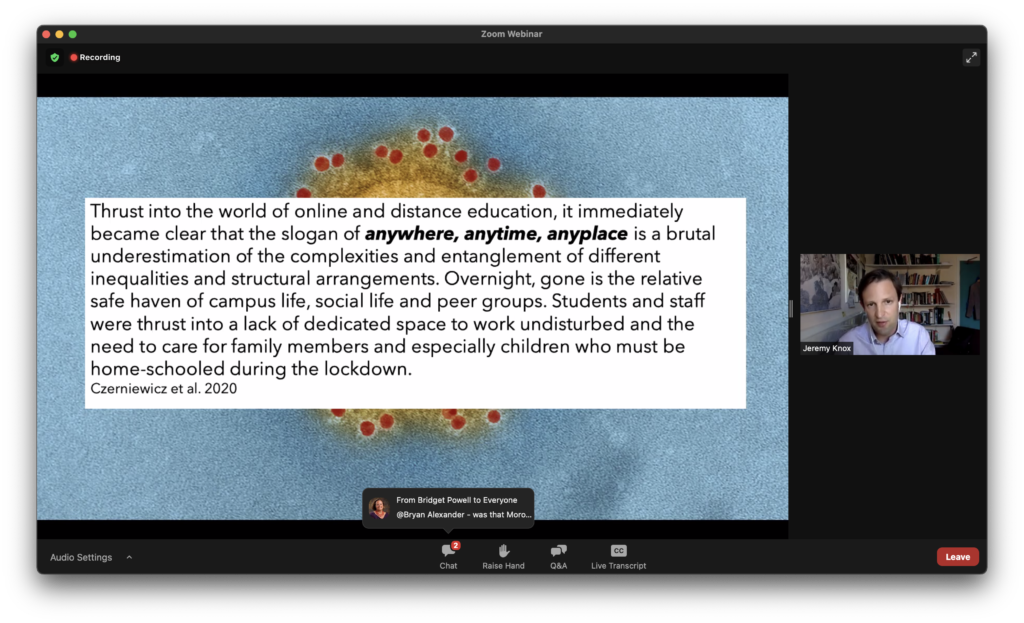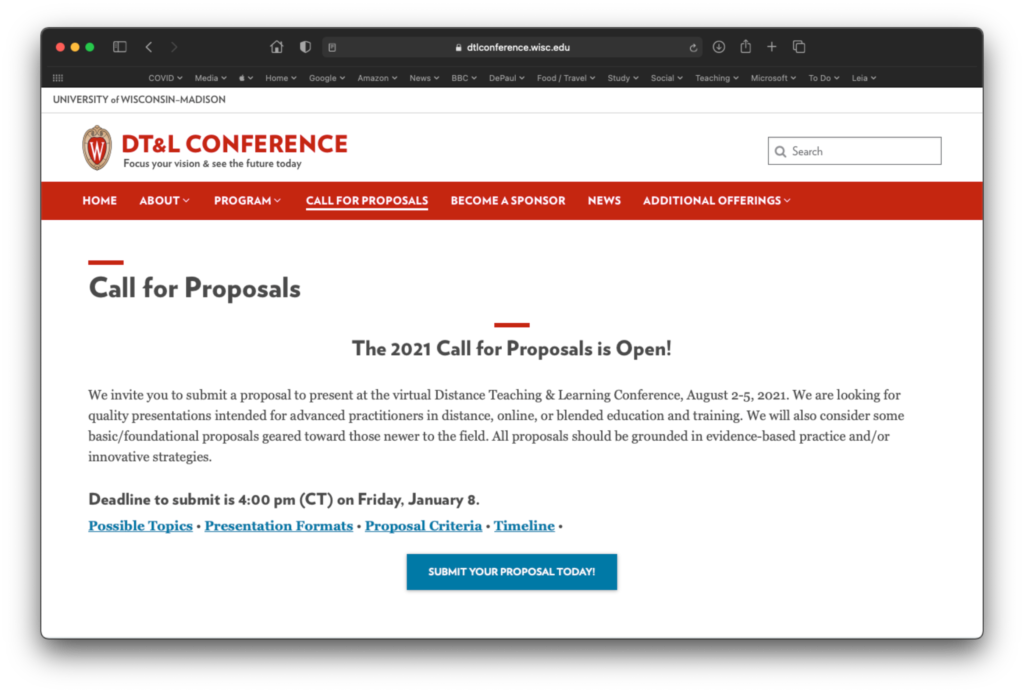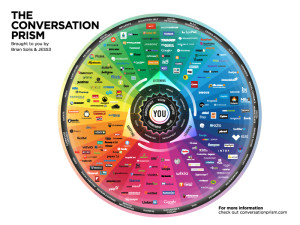Day 3

Florian Hummel
Pioneering an AI learning buddy
Florian Hummel (IU International University of Applied Sciences) gave a fascination presentation on the development and integration of an AI-tutor into all online programs taught at his university.
Same drill as yesterday with AI-assisted notetaking (Voice Memos, Whisper, ChatGPT 4-o to summarize):
The speaker discussed the development and implementation of an AI study assistant, named Syntea, within their university. The university began integrating online courses around 13 years ago and currently offers over 200 degrees, with about 75 delivered in English for an international audience. The institution has seen significant growth in online students, with around 155,000 to 160,000 total students, and recruits approximately 1,000 online students from outside Europe each month.
The AI study assistant started as a simple question-answering chatbot and has evolved to engage in more interactive learning using a Socratic method, asking students questions, providing feedback, and helping them prepare for exams. The system is designed to be used asynchronously, which helps reduce costs and provides flexible learning options for students in various regions, often at different price points.
The AI system was trained using data from the university’s course materials and aims to assist students in their studies by offering immediate responses and support. It has been integrated into the university’s existing systems and is promoted to students through various channels. While initially there was some resistance, student adoption has increased as the system proved useful, especially for online learners who might need assistance outside typical classroom hours.
The speaker highlighted the importance of continuous training for both faculty and students to maximize the benefits of the AI system. The AI assistant’s implementation aims to enhance student engagement, support asynchronous learning, and potentially improve student progression rates. The system remains under constant development, with feedback loops and quality control measures to ensure its effectiveness and relevance.
Rapid Prototyping Online Programs: A Cross-Functional Approach
Sara Baber (University of North Texas Dallas) did an interesting thing – she scrapped the presentation that she had created and crafted a bot on POE (OnlineProgramBot) that essentially could do the work of her presentation. Her inspiration for this was Robbie Melton’s AI workshop from the previous day. I enjoyed seeing this rapid prototype of a rapid protype presentation… Google Doc from the session is here.
Same drill with AI-assisted notetaking (Voice Memos, Whisper, ChatGPT 4-o to summarize):
The speaker, Sarah Baber, addresses an audience, explaining that while various items like swag and hand sanitizer are available, the books she has are for reference only. She encourages attendees to note down ISBNs if interested. Sarah introduces herself, mentioning her extensive experience in higher education, and expresses the importance of change management and innovation in today’s world.
She interacts with the audience, asking about their roles to tailor her talk accordingly, and shares anecdotes about faculty resistance to online teaching. Sarah emphasizes the necessity of embracing change, especially after the pandemic, and how she transitioned from an AV tech to an expert in instructional design and technology. Her career spans various institutions, and she highlights her role in developing online programs, particularly at the University of North Texas Health Science Center and Texas A&M.
Sarah discusses her current position at the University of North Texas at Dallas, where she is launching an online master’s degree in criminal justice with a focus on justice and mental health policy. She stresses the importance of market research and aligning online programs with current trends and needs, citing sources like EAB, Gartner, and the Horizon report.
She delves into AI’s impact on education, sharing her recent creation of an “Online Program Bot” using Poe, a tool she built during a workshop. This bot can provide insights and resources for developing online programs. She demonstrates how it functions, highlighting its ability to access various reputable sources.
Sarah also talks about the challenges of implementing online programs, including faculty buy-in, administrative support, and maintaining a cohesive student experience. She underscores the importance of community and student engagement, suggesting practical steps like sending welcome packages and leveraging AI tools for interactive learning.
Throughout the presentation, Sarah balances her insights with practical advice and anecdotes, emphasizing a collaborative and innovative approach to online education. She encourages the audience to use modern tools to enhance their teaching methods and improve student outcomes.

Gamification Triforce
Gamification Triforce: Understanding Users, Metrics, and Game Mechanics for a Successful Gamification Implementation
Bret Wardle (Neumont College) gave a comprehensive overview of elements of Gamification. The Google Slides are worth downloading.
Same drill with AI-assisted notetaking (Voice Memos, Whisper, ChatGPT 4-o to summarize):
In this talk, Brett Wardle, a TEDx speaker and co-author of a book on gamification, explains the concept and its applications, particularly in education. Wardle emphasizes the importance of using game mechanics to enhance user engagement and retention. He provides an overview of key performance indicators (KPIs) such as monetary, engagement, growth, retention, and conversion, illustrating their relevance with examples from well-known games and products. Wardle also introduces the Hexad player types (Achiever, Philanthropist, Free Spirit, Player, Socializer, Disruptor) and how understanding these can help tailor gamification strategies to different user motivations.
He stresses the significance of player personas and their motivations, suggesting that educators and product designers consider these factors when implementing gamification. Wardle then categorizes various game mechanics into reward systems, progress tracking, narrative and storytelling, social engagement, and game psychology, providing numerous examples and linking them to specific KPIs and player types. He concludes by encouraging the audience to use QR codes to access slides and additional resources, underscoring the practicality and extensive research behind gamification techniques.
Leveling Up Learning: The Revolutionary Fusion of Gamification and Generative AI
Michael Hyzy and Shanti Greene (Daugherty Business Solutions) demonstrated an interesting application of Generative AI to improve workplace relations. Don’t know for certain, but assuming HeyGen was used for the demonstration.
Same drill with AI-assisted notetaking (Voice Memos, Whisper, ChatGPT 4-o to summarize):
The presentation was conducted by Mike Hyzy and Shanti Gray, who discussed the intersections of AI and gamification, detailing their journey from writing a paper for Built-In to presenting their ideas nationally. Mike introduced the session by sharing his background in product development and his work integrating gamification into fitness equipment and health insurance systems. Shanti, with a deep history in AI, talked about his experiences building AI models and teaching data science.
The presentation covered motivational design, emphasizing gamification as a subset, exploring its benefits, and future possibilities. They highlighted the influence of behavioral economics, psychology, and game mechanics in motivational design. Examples like Duolingo, LinkedIn, Nike Run Club, and Uber illustrated successful gamification implementations, showing its impact on engagement, loyalty, and productivity.
They acknowledged challenges such as complexity, ethical concerns, and resource intensity in implementing gamification. The presentation transitioned to discussing the integration of AI and gamification, suggesting that AI can make gamification more efficient and personalized. They demonstrated how AI could be used to enhance human interactions through an example of training individuals to de-escalate conflicts using AI-generated feedback and simulations.
The future of gamification, according to them, involves leveraging AI for more dynamic and personalized experiences, promoting sustainability, and improving well-being. They concluded by encouraging questions and offering to connect for further discussions on implementing such technologies in specific fields like nursing education.












